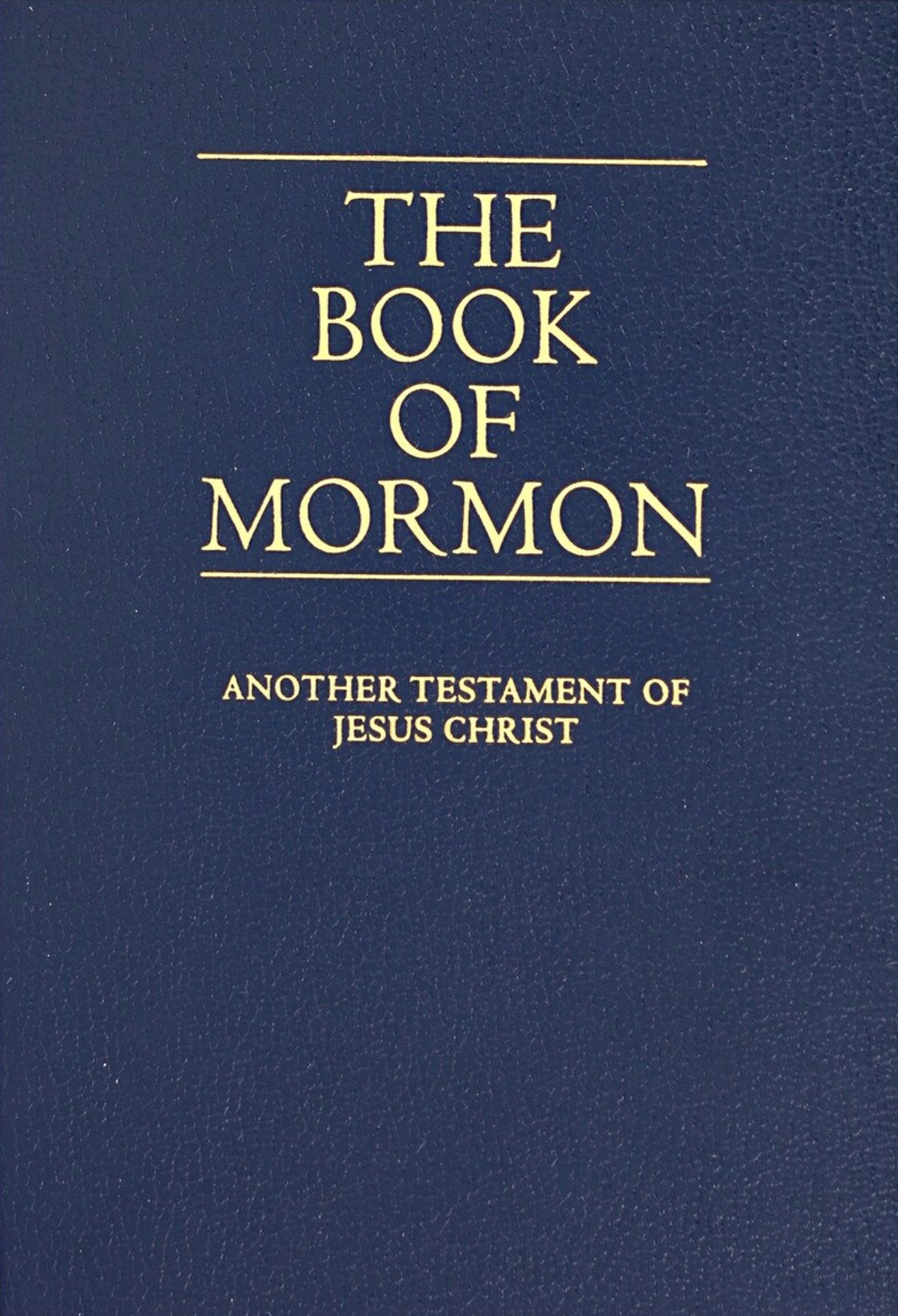The Book of Mormon
Joseph Smith
Uncharitably, I can say the Book of Mormon reads like a meme: “I forced an AI to spend 1000 hours reading the Bible and then write a new Bible based on that information.” I found it derivative, repetitive, hackneyed, and nigh unreadable for long boring stretches. The problem with this assessment is two-fold. First, I don’t want to be uncharitable. Second, this assessment is too lazy. It’s not hard to sit outside and criticize. What I tried to do instead was understand why Mormonism caught fire when it did in the way that it did, and I do have some thoughts.
First, there’s a deliberate simplicity to the Book of Mormon. “Plain speaking” recurs often as a mark of the righteous, in contrast to the “priestcrafts” of those who bury the truth in convoluted theologies that bind the laity to a caste of theologians who care nothing for the poor and the downtrodden. Many “plain spoken” teachings of the book resonate, I suspect, with many an average church-goer today. The fall into sin was not only accounted for in God’s plan, but required because without sin there is no free will — and God would never trammel a man’s free will.
There’s no reason to ask why prophecy and healing and tongues ceased, because they never ceased — God is the same yesterday and today and forever. The revelation of Jesus was not limited to one corner of the globe — salvation is only through the name of Jesus and all have heard his name. The atonement is not limited but infinite, and guarantees resurrection for all from the first death. We’re responsible to live righteously in this probationary period if we want to escape the second death. There’s an internally logical simplicity to the Book of Mormon that could appeal to someone who’s exhausted by lofty churchmen with their complicated empty words and conceited empty lives.
Also, none of the weird stuff is in the Book of Mormon. Plural marriage is outright condemned in Jacob 2-3 and Ether 10, and is tacitly absent in the social welfare system of Mosiah 21. There’s not a trace of the complicated system of righteous men achieving exaltation to godhood. I assume these were later revelations, but I’m open to correction from someone who knows more than I do. If you’re not theologically grounded, there isn’t anything freaky here to put your back up. I can understand how the “plain speaking” of the Book of Mormon might appeal as an alternative to crusty orthodoxies that seem more interested in their own power structures than in living like Jesus.
Second, the Book of Mormon is very much a work of its time. Americans were fascinated by the vanished Mound Builders, so the idea of great precursor civilizations was in the air. The agnostic teachings of the false prophet Korihor sound an awful lot like 19th-century scientific materialism.In the east, the social panic of Anti-Masonry echoes in the secret rites of the Gadianton robbers. In the west, the opening of the hinterlands to settlement provides an obvious escape route for persecuted Mormons in the same way that Lehi and his family fled to the American wilderness ahead of judgment.
I even find theological justification for “management” of Native American populations. In the account of the final triumph of the godless Lamanites over the apostate Nephites, the path to redemption for the Lamanites includes laying aside weapons and forswearing violence. Since Mormon anthropology considers Native American tribes as degraded remnants of the Lamanites, it’s not difficult to sense the prejudices of expanding white America. Tribes that submit peacefully are on the path to redemption, and those that resist are wicked Lamanites practically begging for conquest.
As I read it, the Book of Mormon appeared at the only time it could have found such explosive success. Rising tensions over slavery threatened the geopolitical order, rising materialism undermined the spiritual order, rising disillusionment with organized religion left people religiously hungry but spiritually adrift, and rising consciousness of extinct civilizations made the discovery of ancient records plausible. If this is right, then the rise of Mormonism is not as hard to understand as it might first appear.
I set out in this review to be charitable, and I’m not sure I succeeded. No doubt, a devout Mormon would consider this nothing but a polite attack on their faith, a reduction of a movement of God to a quirky side effect of social and historical forces. There’s probably some truth to that. I didn’t finish my reading of the Book of Mormon with an inclination to convert, but I do feel I understand its appeal in its time. Even today, progressive Mormons like fantasy author Brandon Sanderson, who seems to acknowledge the fictional nature of the book’s narrative, considers it a story through which God molds the character of his people.
Given this sort of adaptability in the teeth of advancing knowledge, not to mention Mormonism’s long track record of cohesive community and hard work, I suspect that both the faith and its book will survive for some time regardless of how strange or outdated it appears outside the walls of the temple.
Author: Joseph Smith
Series: Standard Works
Genres: Nonfiction, Religion, Mormonism

